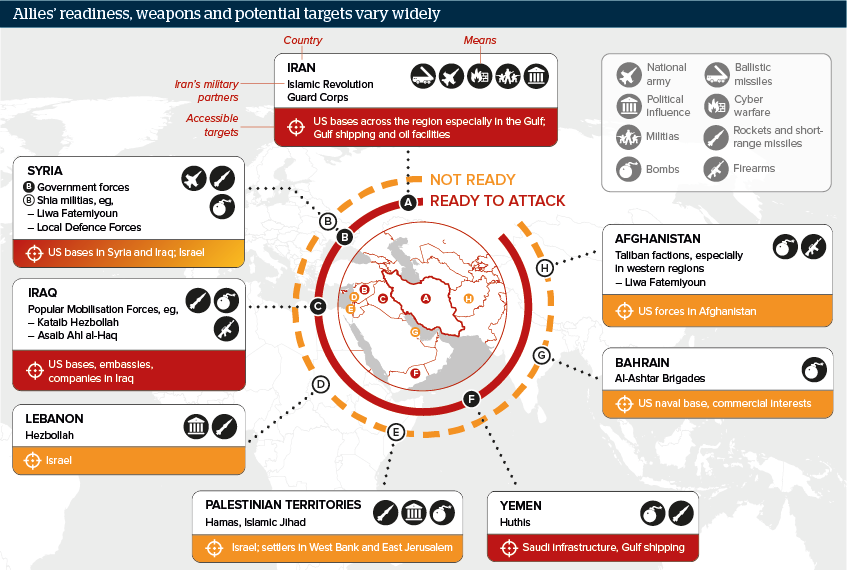Iran will use flexible anti-US Middle East strategies
To avenge the killing of Qassem Soleimani, Tehran promised to remove Washington’s influence from the region
Source: Oxford Analytica
Outlook
Iran’s Quds Force has spent decades recruiting and arming regional militias. The assassination of leader Soleimani only reinforced the long-standing goal of expelling the United States.
These groups are a potentially powerful weapon, but complex and costly for Soleimani’s successor, Ismail Ghani, to deploy. Most have local interests incompatible with immediate attacks on US assets or allies.
The main exceptions are Shia militias in Iraq, avenging the simultaneous killing of a top commander, and in Syria. More powerful clients such as Lebanese Hezbollah and Damascus, despite strong rhetoric, would risk too much by targeting Washington -- or even top enemy Israel.
Impacts
- Yemen’s Huthis are far from being an Iranian proxy but may have their own reasons to step up attacks across the Saudi border.
- The new US peace plan has increased the motivation of some Palestinian groups to fire rockets into Israel or attack settlers.
- Despite Tehran’s long-term funding of many Afghan groups, they are unlikely to take action on its behalf.
- Iran’s northern neighbours -- Turkmenistan, Azerbaijan and Armenia -- would oppose anti-US operations.
